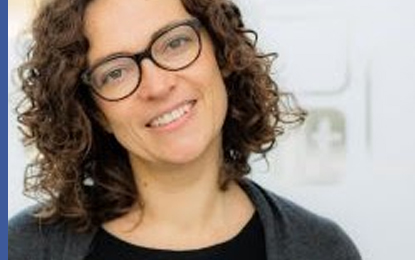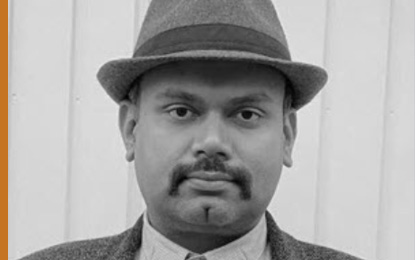We are pleased to announce a workshop on Human-Robot Interaction to be held in Krakow, Poland on the 18th of November, 2019. The goal of this workshop is to bring together a small group of psychologists, cognitive scientists and engineers working on different aspects of HRI to brainstorm ideas for future research and collaboration.
We plan to focus on the following research topics:
![]() Gaze-mediated human-robot interaction
Gaze-mediated human-robot interaction
![]() Designing the next generation of empathetic social robots
Designing the next generation of empathetic social robots
![]() Robots for education
Robots for education
![]() Machine learning and knowledge processing in robotics
Machine learning and knowledge processing in robotics
![]() Representation of the environment
Representation of the environment
![]() Other related topics…
Other related topics…
Participation of students and young researchers is strongly encouraged.
The format of the workshop will be presentations and brain-strorming sessions. There will also be two keynote speeches.
There is no registration fee, but please register here.
If you are interested to participate, please send us the title and a brief (200-300 words) abstract of the research you would like to present in our workshop to this address: hri@agh.edu.pl. Please send your abstract by Monday, November 11, to help us plan the schedule of presentations.
Krakow is a beautiful city, and not so expensive. We are sure that you will enjoy visiting here in the autumn. If you need any local advice for places to stay, please feel free to contact us.
Keynote speakers:
Agnieszka Wykowska, Principal Investigator at Italian Institute of Technology (Genoa, Italy)

Professor Agnieszka Wykowska leads the unit “Social Cognition in Human-Robot Interaction” at the Italian Institute of Technology (Genoa, Italy), and is an adjunct professor of engineering psychology at the Luleå University of Technology. In her research, she examines mechanisms of human social cognition with the use of cognitive neuroscience methods and interactive protocols involving humanoid robots.
Title: Social gaze in human-robot interaction
Abstract:
In daily lives, we need to predict and understand others’ behaviour in order to efficiently navigate through our social environment. When doing so, we use various, often implicit, mechanisms of social cognition that our brains have developed in order to pick up behaviourally relevant signals from the environment. One of the most informative, salient and important signal is others’ gaze direction. In our studies, we address the question of whether gaze of an artificial agent, such as a humanoid robot, is interpreted by the human brain in a social manner, similarly to gaze of other humans. In a series of experiments, we examined whether mutual gaze or gaze-contingent behavior of a robot would impact engagement in joint attention. Our results show and interesting interaction between a social aspect of the mutual gaze or gaze contingency and strategic cognitive control over basic reflexive mechanism of attentional orienting. In another line of research, we investigated whether gaze-induced joint attention is influenced by action expectations, and we found that this is indeed the case. Finally, we also showed that mutual gaze impacts some higher-order processes of social cognition, such as honesty and likelihood of engaging in deception. Our results clearly indicate that the gaze of a humanoid robot is interpreted in a social manner, and that many mechanisms of social cognition are modulated by perception of the robot’s cameras as “eyes”. The results will be discussed in the context of fundamental research on social cognition, as well as several more general questions that need to be addressed, such as, societal impact of robots towards whom we attune socially or clinical applications of social robots.
Amit Pandey, President, CSO, CTO, Hanson Robotics

Dr. Amit Kumar Pandey is the President, Chief Technology Officer (CTO) and the Chief Science Officer (CSO) at Hanson Robotics. Earlier he served as the Head Principal Scientist (Chief Scientist) at SoftBank Robotics Europe (formerly Aldebaran Robotics), Paris, France, also serving as the scientific coordinator (R&D) of the collaborative projects of the company. In the past 6 years he also worked as a researcher in Robotics and AI at LAAS-CNRS (French National Center for Scientific Research), Toulouse, France.
Title: "Social robots: What’s next"
Programme Committee:
![]() Cengiz Acarturk, METU, Turkey
Cengiz Acarturk, METU, Turkey
![]() Bipin Indurkhya, AGH, Poland
Bipin Indurkhya, AGH, Poland
![]() Piotr Nawrocki, AGH, Poland
Piotr Nawrocki, AGH, Poland
![]() Bartlomiej Sniezynski, AGH, Poland
Bartlomiej Sniezynski, AGH, Poland
Supported by:


Programme:
9:30
Registration
10:00
Keynote:
Amit Pandey, Social robots: What’s next
11:00
Paulina Zguda, Anna Kolota, Bipin Indurkhya, On the role of trust in child-robot interaction
11:30
Azumi Ueno, Initiatives to create the robot reproducing human-to-human physical contact and future works focusing on heat
12:00-14:00
Lunch break*
14:00
Tomasz Kasprzyk, Topological navigation method for mobile robot based on marker detection
14:30
Cengiz Acarturk, Deixis and Deictic Gaze in HRI Environments
15:00
Keynote:
Agnieszka Wykowska, Social gaze in human-robot interaction
16:00
Coffee Break
16:30
Bogdan Kwolek, Pose estimation, humanoid robot localization and navigation for object grasping
17:00
Bipin Indurkhya, Mateusz Jarosz, Piotr Nawrocki, Bartłomiej Śnieżyński, Gaze-mediated HRI
17:30
Summary/Panel discussion
19:00-20:30
Social evening*
